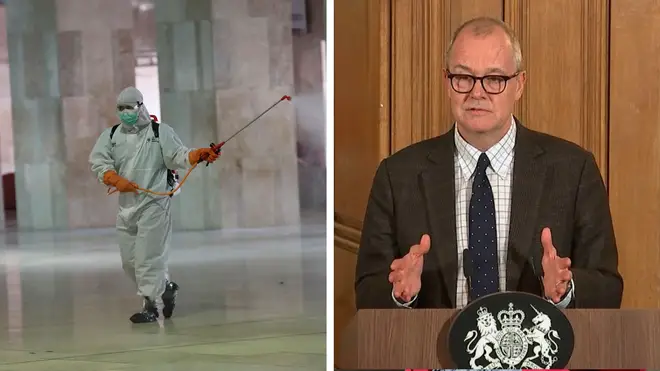
Tom Swarbrick 4pm - 7pm
13 March 2020, 08:35 | Updated: 13 March 2020, 08:50
The Government's chief scientific adviser is defending the measures taken to delay the peak of the coronavirus outbreak in the UK.
People with even mild symptoms of Covid-19 - a new continuous cough or a temperature of over 37.8C are being urged to self-isolate for a week.
However, ministers have stopped short of following other countries in ordering school closures and the cancellation of social gatherings.
Speaking to Nick Ferrari, Sir Patrick Vallance insisted that the action they've taken is far from a trivial change.

He said: "This isn't an epidemic that is going to last a couple of weeks, it is going to go on for months.
"We need to make sure we do the right thing at the right stage to have the biggest impact.
"And the measures that were announced yesterday, which were that anybody with mild symptoms, which are a fever, a raised temperature or a cough, should stay at home. That's not a trivial change.
"That is going to have a big impact of many people staying at home for a week.
"It is one of the things that can have the biggest impact in terms of reducing the transmissability and ability of the virus to spread quickly across the population."
Other countries have taken far more draconian measures, such as Italy, who have closed schools, shops and travel from region to region.
But Sir Patrick insisted that it was "impossible" for a country to attempt to self-isolate its entire population.
He added: "When you've got it inside the country, it would be difficult to stop that spread."
The government adviser also explained the decision not to close schools, saying that once closed, they may have to stay closed for months and that would have a huge impact on the country.
He said even with schools closed, children would still congregate together, so the impact would be reduced - and grandparents may be forced to look after them, which could put them at greater risk of catching Covid-19.